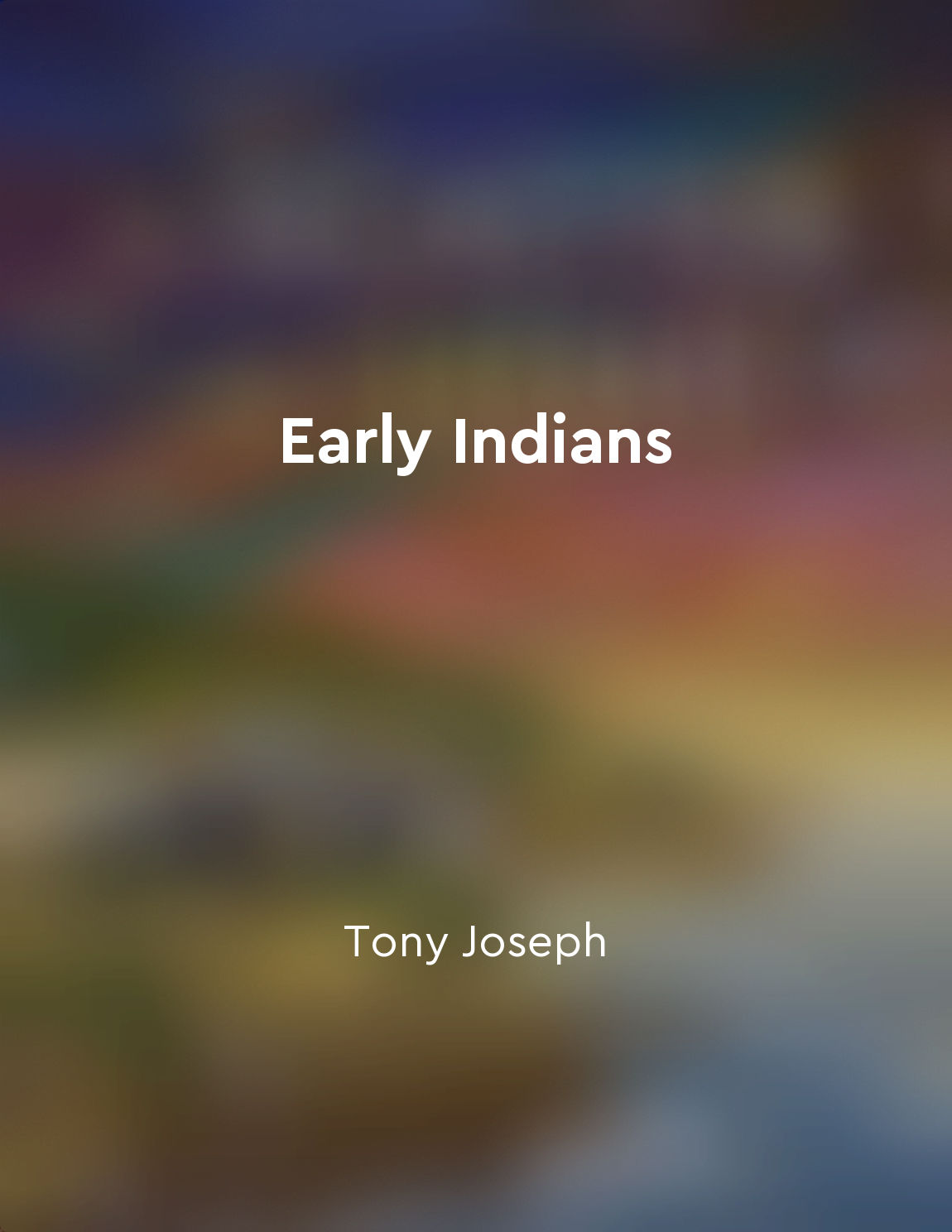Vedic culture emerged in the aftermath from "summary" of Early Indians by Tony Joseph
The origins of the Vedic culture can be traced back to the aftermath of the decline of the Indus Valley civilization. As the cities of the Indus Valley civilization began to decline around 1900 BCE, a new culture started to take shape in the northwestern region of the Indian subcontinent. This culture was characterized by a shift from urban centers to rural settlements, a change in burial practices, and the emergence of new religious and social practices. The people of the Vedic culture were predominantly pastoralists and agriculturists who lived in small villages and practiced a semi-nomadic lifestyle. They worshipped a pantheon of nature gods and goddesses and performed elaborate rituals to ensure the fertility of their lands and livestock. The Vedic texts, known as the Vedas, were composed during this period and provided a blueprint for the religious and social organization of Vedic society. The Vedic culture was built on a foundation of social hierarchy, with priests (Brahmins) at the top, followed by warriors (Kshatriyas), traders and farmers (Vaishyas), and laborers and servants (Shudras). This hierarchical social structure was reinforced by the concept of varna, or caste, which dictated one's occupation and social status based on birth. The Vedic culture also placed a strong emphasis on the performance of rituals and sacrifices, which were believed to maintain cosmic order and ensure the well-being of the community. These rituals were conducted by the Brahmins, who held a monopoly on religious knowledge and were responsible for mediating between the gods and humans.- The emergence of the Vedic culture in the aftermath of the decline of the Indus Valley civilization marked a significant shift in the cultural landscape of the Indian subcontinent. This new culture was characterized by a rural, pastoral lifestyle, a hierarchical social structure, and a strong emphasis on ritual and sacrifice. The Vedic texts provided a foundation for the religious and social organization of Vedic society, shaping the beliefs and practices of the people who would go on to shape the history of ancient India.
Similar Posts
Counterrevolutionary forces will resist change
It is a well-known fact that change is not always welcomed by everyone. Whenever there is a movement towards progress or transf...
Indian literature and music
Indian literature and music are integral parts of the rich cultural heritage of India. They have played a significant role in s...
The Vedas are considered sacred scriptures by Hindus
The Vedas hold a revered position in Hinduism as sacred scriptures that are considered to be eternal and divine revelations. Th...
Sacrifice and rituals were integral to Vedic religion
Sacrifice and rituals played a crucial role in the Vedic religion of ancient India. The Vedic texts emphasize the importance of...

The role of rituals and festivals in Hindu practice
Rituals and festivals are essential components of Hindu practice, with a deep significance that goes beyond mere tradition or c...
The Vedas are considered sacred scriptures by Hindus
The Vedas hold a revered position in Hinduism as sacred scriptures that are considered to be eternal and divine revelations. Th...
The importance of agriculture and trade in Indian history cannot be overstated
Agriculture and trade have played a crucial role in shaping the history of India. The significance of these two aspects cannot ...
The Vedic Period laid the foundation for Hinduism
The Vedic Period, which spanned from around 1500 BCE to 500 BCE, played a crucial role in shaping the religious and cultural la...


